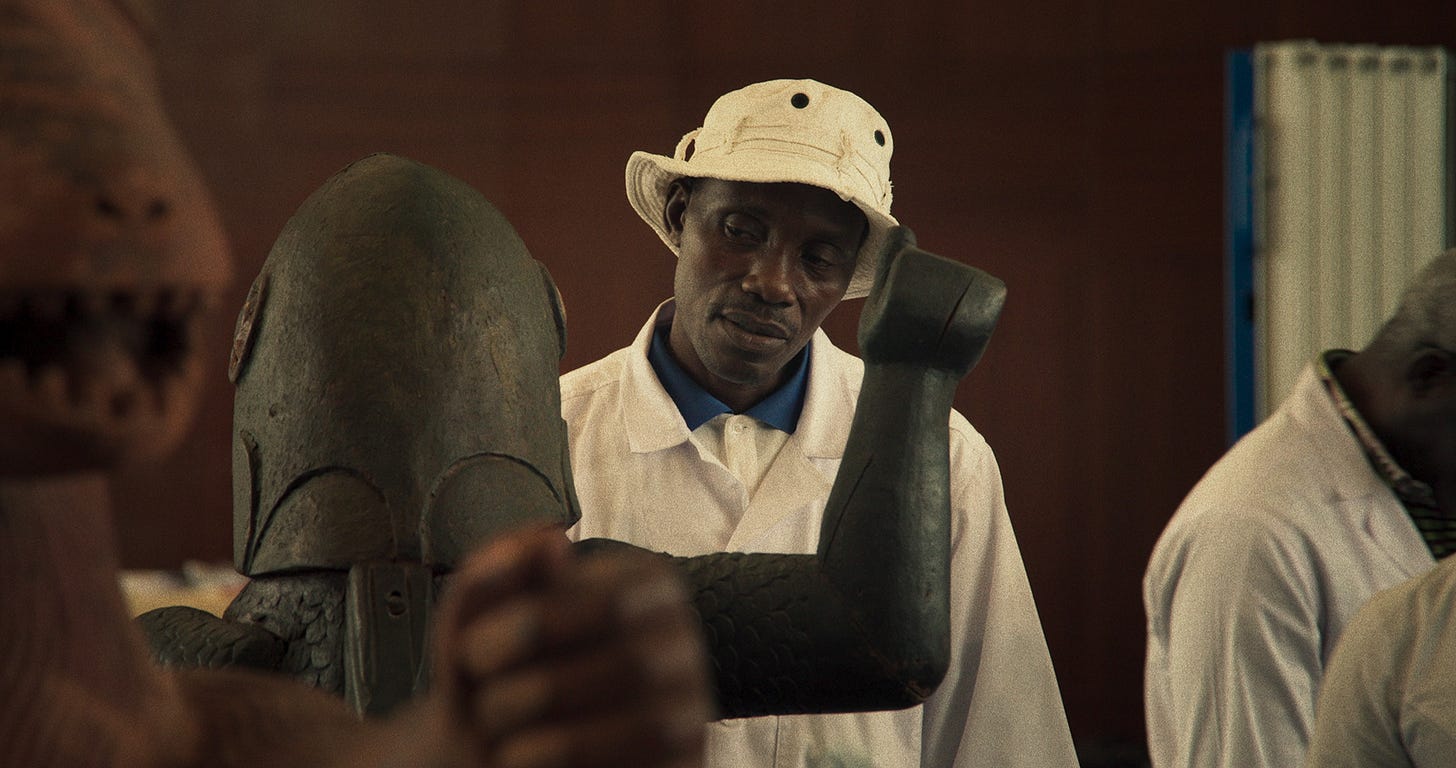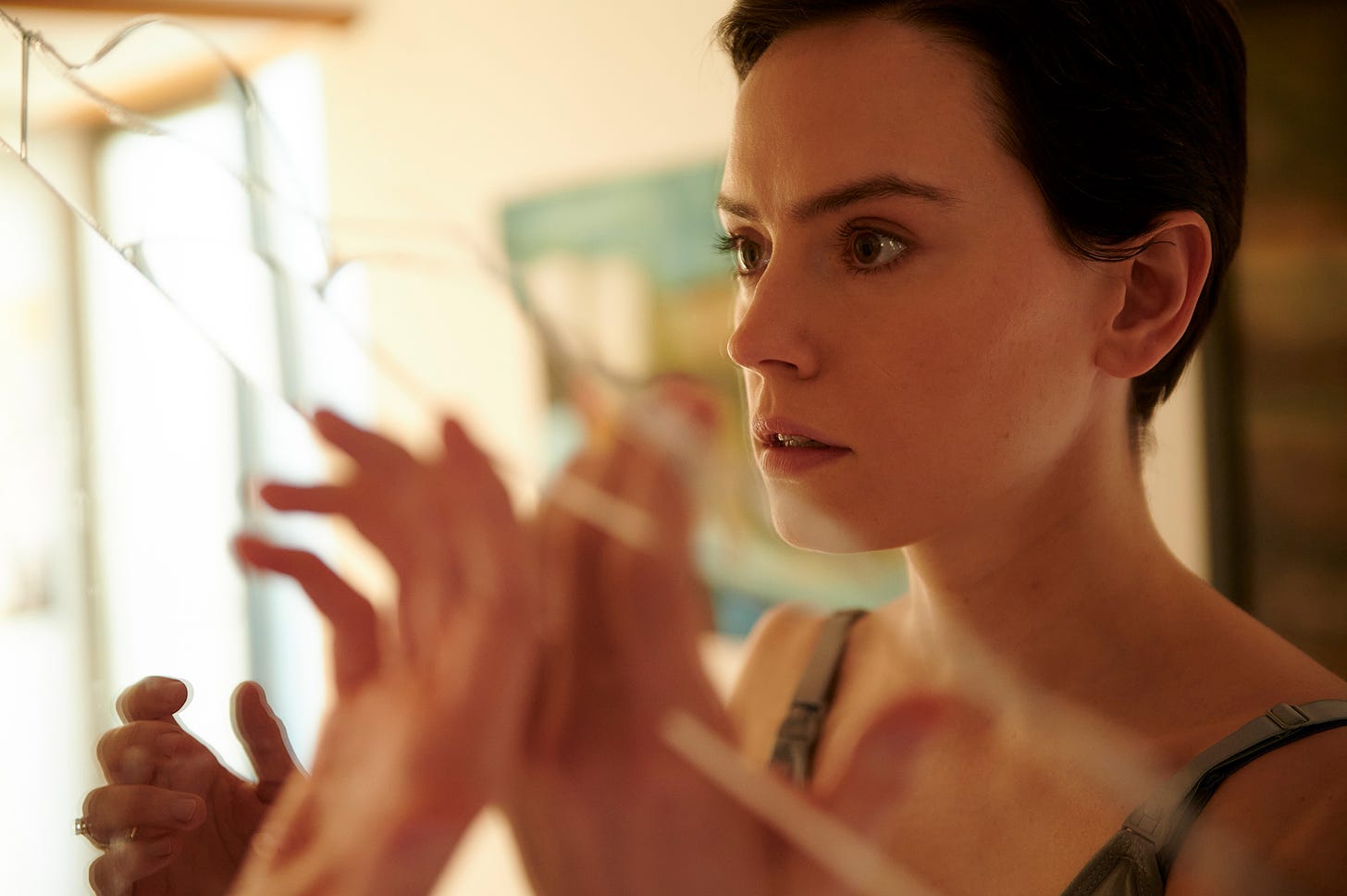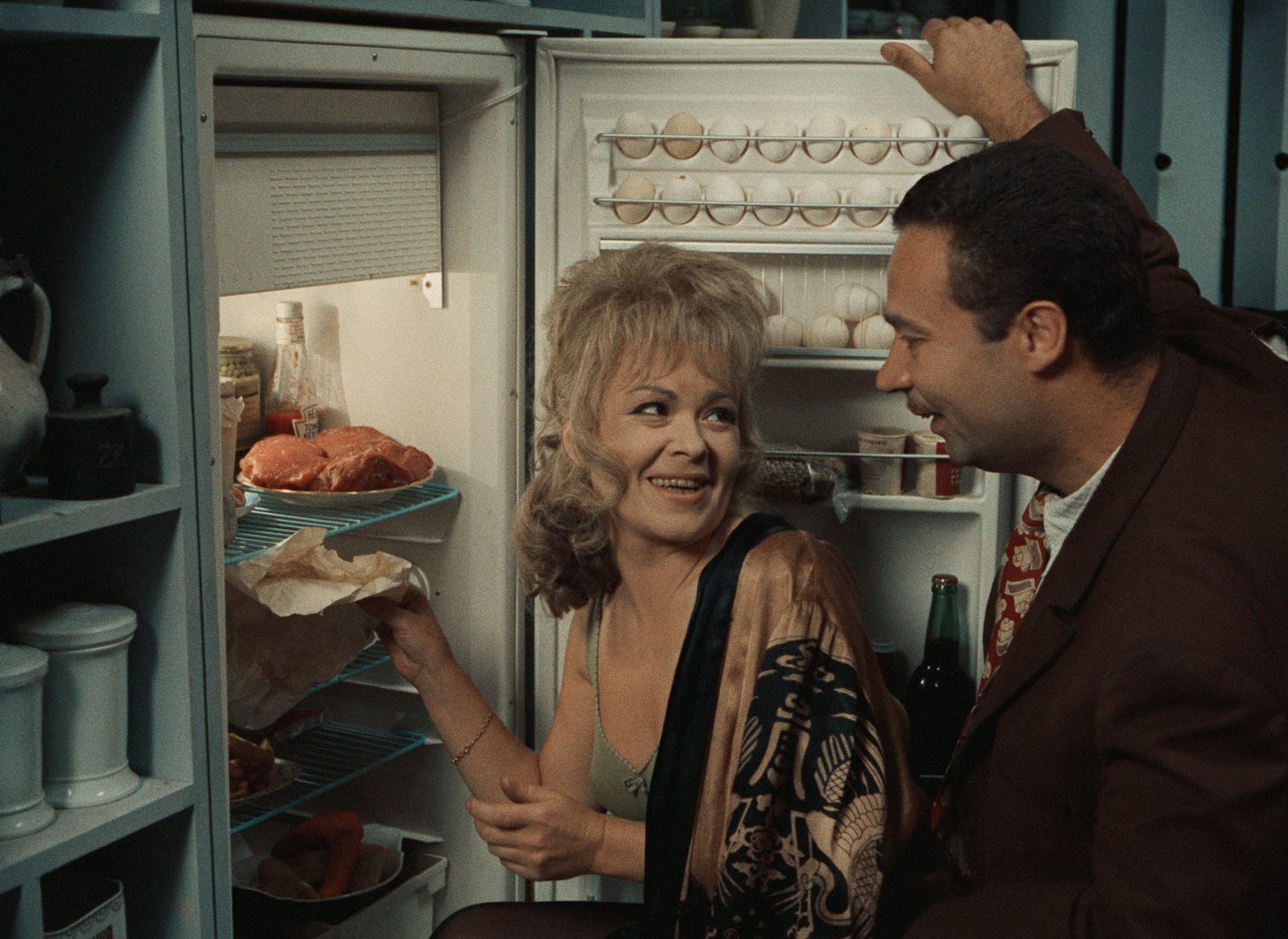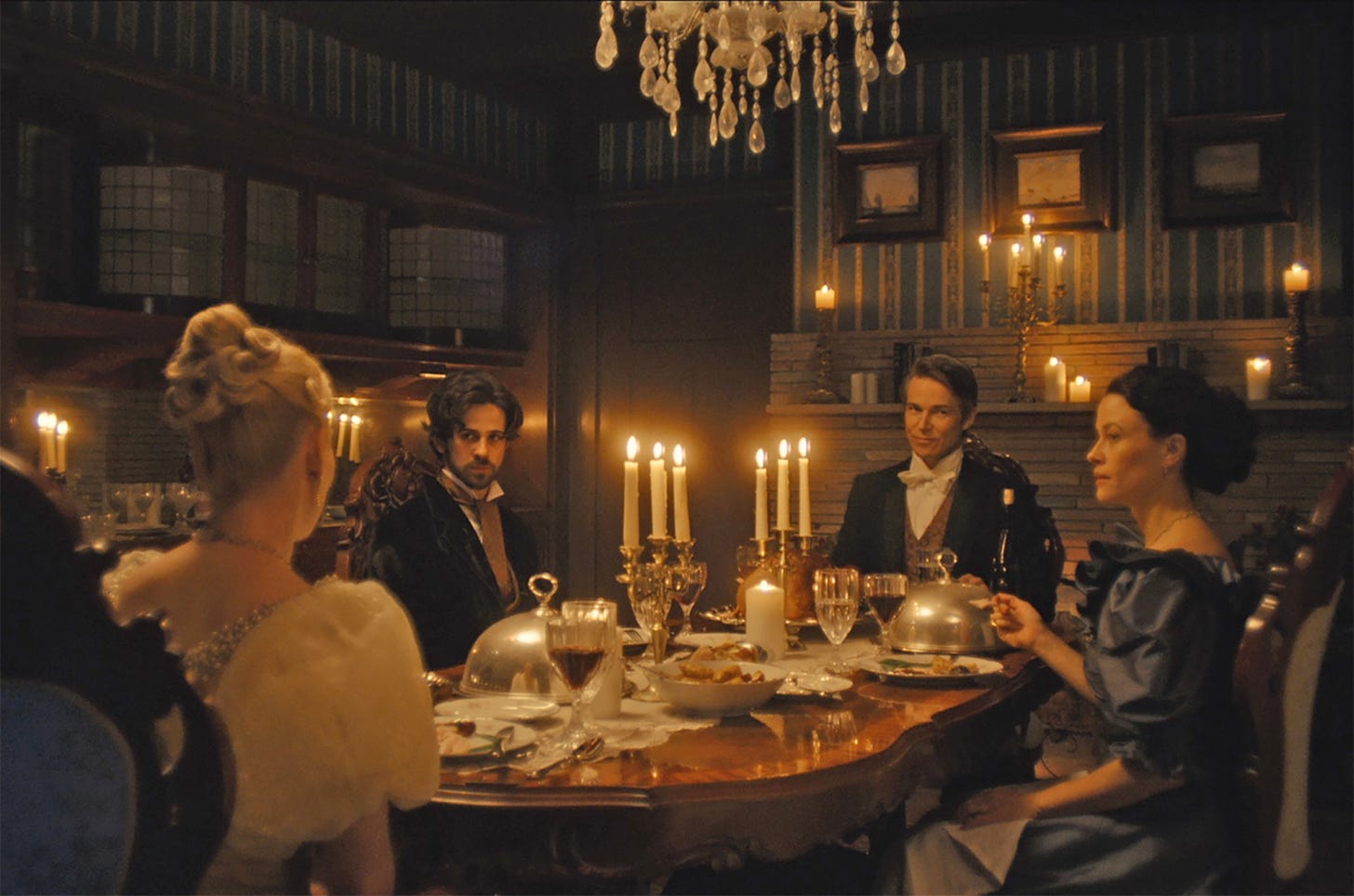It’s funny to see Apple allow their streaming service to become a channel on Amazon’s Prime Video considering how much they’ve always sought to stand apart on their own. You still can’t Chromecast from their app since they’d rather you use their own propriety AirDrop instead. I guess that’s now been proven to have more to do with what they think about Google than what they desire for themselves.
I personally love the idea. For $10 I can subscribe for a month and watch whatever I want through my Prime channels. That’s where I pay for my Max and AMC+ too (the latter of which has its own intriguing subscription model considering it’s cheaper than Shudder despite including Shudder along with Sundance Now and IFC Films Unlimited). And I can Chromecast everything from there. (Sorry, Apple.)
It’s one more example of Cable 2.0. Yes, it’s dumb to just be going back to the same old model. Yes, it’s criminal the way studios have been exploiting this shift to cut creatives out of residuals. But, for me, the consumer, it’s great. I can actually pay for the stuff I want instead of bloated packages with stuff I don’t. And since I’m already forced to pay $90 a month for internet alone (the peril of living in a city where one cable company has a monopoly), I’d rather not give them more.
What I Watched:
DAHOMEY
(limited release)
There are three things happening during Mati Diop’s DAHOMEY, a documentary account of twenty-six royal treasures stolen from the Republic of Dahomey by France being repatriated back to what is now the Republic of Benin. One: the treasures’ own experience of their return as depicted through a booming voice against a black screen. Two: a rousing debate by students at the University of Abomey-Calavi about what, in their estimation, this act means … and doesn’t mean. Three: the ultimate result with citizens traveling to the museum to view these artifacts while politicians applaud themselves for making it happen.
It’s a powerful account of just how complex the concept of colonialism remains and how its hold on freed nations doesn’t automatically disappear via independence. The poetic the words Diop gives the treasures is thought-provoking on its own by providing them the dream of seeing daylight again while also the cynicism of wondering whether trading one museum for another really changes anything, but the arguments made by the students are what resonate most because they are the real victims here. They’re the ones who’ve lost the ability to grow up with the physical portion of their heritage existing alongside the spiritual portion.
And none of them are wrong despite their passionate rejections of what the others are saying. It is an insult that France only returned twenty-six pieces of an estimated seven thousand in their possession because it does extend their hold on Benin by positing they control the artwork’s fate rather than the descendants of its creators. But it’s also a victory that the nation now has twenty-six more pieces of its history than it did yesterday because you cannot hope to reclaim everything if you never take the steps to start the process. Both things can be true. The Beninese people can rejoice in what was accomplished while continuing to fight for everything that must still be done.
Diop does a wonderful job splicing these demands and appreciations against the backdrop of the event itself. She gives the celebratory nature of the repatriation necessary context on both sides of the spectrum so we as outsiders can understand the lasting effects of European conquest. And even if the conversation doesn’t necessarily come to a definitive conclusion about what should be done moving forward (giving credit to the president, calling out the hypocrisy of doing so, weighing the benefits of diplomacy against the eye-for-an-eye desire to simply go and take it all like France did), it gets people thinking about what this act truly means to them. Because while some will use it to heal wounds, it will help others fully grasp the century-plus of pain those wounds caused.
- 8/10
MAGPIE
(limited release)
Matilda (Hiba Ahmed) got the part. Mom (Daisy Ridley’s Anette) and Dad (Shazad Latif’s Ben) are ecstatic … but for different reasons. She’s excited because her little girl gets to have an adventure. He’s excited because he gets to have one too. Why? Because Ben always gets what he wants. He wanted a second child when Anette wanted to get back to work. He wanted to move to the country for the quiet to write when she loved the city and nothing new has been published since. He wants to meet the famous Alicia (Matilda Lutz), star of Matilda’s new film. And he most definitely wants to play the martyr through it all.
The title MAGPIE is thus an interesting one because the assumption is that it alludes to Ridley. She’s top billed. She’s on the poster. Yet the further we get into the film, her frustrated wife is way too laconic to be dubbed “incessantly talkative.” No, that description is much better suited for Ben—especially once he starts to turn on the charm in order to feel like he fits in with a cast and crew always rolling their eyes at the outsider interjecting platitudes none of them care to hear. He’s as superficial as it gets. An opportunist willing to disparage his wife for sympathy by projecting each of his own shortcomings upon her.
Director Sam Yates and screenwriter Tom Bateman (jumping off an original idea from Ridley herself—he’s also her husband) do a wonderful job painting Ben in the worst light possible. I mean, this dude is a Piece. Of. Work. Too busy watching Alicia’s leaked sex tape to listen to Anette as she asks his opinion on wardrobe for her important meeting in the morning. Too giddy to hobnob with celebrities to even consider the ramifications of leaving Anette to watch the baby during said meeting. Ben is so bad that everyone she talks to from her past is all too willing to allude to his shortcomings if not over-joyed to finally blurt them out in full.
Our knowing this truth is crucial to the increasing suspense once innocuous flirtations between Ben and Alicia evolve. Because Anette isn’t a rube. She may have stayed in this marriage despite his toxicity, but she sees what’s happening. She knows not to trust him. And she discovers what’s going on. The tension therefore lies with the mystery of what she’ll choose to do in response. Because it’s a delicate situation when young children are involved and the last thing she wants to do is feed into the narrative Ben has crafted around her. Anette’s plan must be less about exposing him than letting him hang himself.
I’ll be honest and say the truth of what’s happening is obvious. So obvious that a climactic flashback montage showing what we already know feels a bit smug. Thankfully, however, what it confirms is always handled with expert precision and entertaining gusto. Knowing therefore ruins nothing because the ride is too enjoyable. The payoff for rendering Ben as such a pathetic excuse for a chauvinistic man is that we crave his comeuppance. We want to revel in how he’ll digs his own grave while Anette silently watches and/or orchestrates from the sidelines. Ridley and Latif play their parts in this pulpy thriller’s machinations to perfection, so don’t be embarrassed if you end up standing to cheer the satisfying result.
- 7/10
MURDERING THE DEVIL
[Vrazda ing. Certa]
(screening at Metrograph)
Theo Devil (Vladimír Mensík) is a man! He shouldn’t be alone and made to wear ratty suits and dress shirts missing buttons. He should be able to pick whichever woman he wants to do his bidding and never dare ask for more. So, when his young mistress finally grows tired of his boorishness, he’ll just have to find someone else with “fewer options” to fulfill his demands. How about one of the girls who crushed on him during school? If one of them is still single, she wouldn’t be able to resist his mesmerizing voice over the phone.
While Czech costume designing and screenwriting legend Ester Krumbachová’s sole directorial effort MURDERING THE DEVIL isn’t about Theo, she does draw him as being the star of his own film—one that Hollywood (especially in the 1970s) would have made instead. That’s exactly what the industry strove to deliver to their male audiences: manly men with attractive women swooning on their arms regardless of how horrible they might prove. So, by focusing on Ona (Jirina Bohdalová) instead, Krumbachová can show Theo in all his uncouth glory without a lick of compassion. Just because this forty-something woman knows what a bastard he is, though, doesn’t mean she wouldn’t still marry him anyway.
The success here isn’t merely that the film is hilariously skewering men’s penchant for chauvinism and gluttony (Theo must be fed and, if there isn’t food to feed him, he’ll feed on whatever is in reach), but that it’s also poking fun at women who willingly put up with it. Ona is lonely and, when she gets Theo’s unsolicited call, can’t help imagining the whirlwind affair that might ensue. Sure, he’s not as attractive as he once was. Yes, watching him eat the gigantic dinners she prepares makes her want to puke. But he’s interested. He keeps coming back.
Ona wants to make certain that doesn’t stop by playing dumb and steering conversations towards his “genius.” Everything she does is to get him in bed and yet all he wants is for her to cook and perhaps wash and darn his clothes. At a certain point it almost becomes a game to see what she must do to fully ensnare him once and for all … before that excitement stops being worth the trouble. Even then, however, one hint of marriage inevitably brings Ona around. It’s an absurd dance between two souls who crave each other for very different reasons and crave winning even more.
Oh. And did I mention Theo might actually be the devilish demon alluded to by his surname? While this potential adds more fantastical insanity to whole, it still won’t sway Ona from her goal. She has a plan (based in part on a fortune teller’s reading) and will pursue it to whatever end awaits. Some of the details shift depending on new revelations, but she’s always in full control—whether her current desire is to bed him, wed him, or make him dead.
MURDERING THE DEVIL is short, direct, and easy to invest in with the comedic premise taking center stage. Bohdalová and Mensík deliver memorably over-the-top performances amidst gorgeous visuals of succulent feasts and a busy apartment filled with ornate furniture and giant plants: the aesthetic summed up as “more” since Theo’s insatiable appetite and soul devour everything in sight with food, non-food, and romance disappearing in an instant. And through it all arrive brief confessionals outlined by picture frames with Ona updating us directly about how she’s feeling, her present intent, and her latest dreams. It’s a match made in Hell.
- 7/10
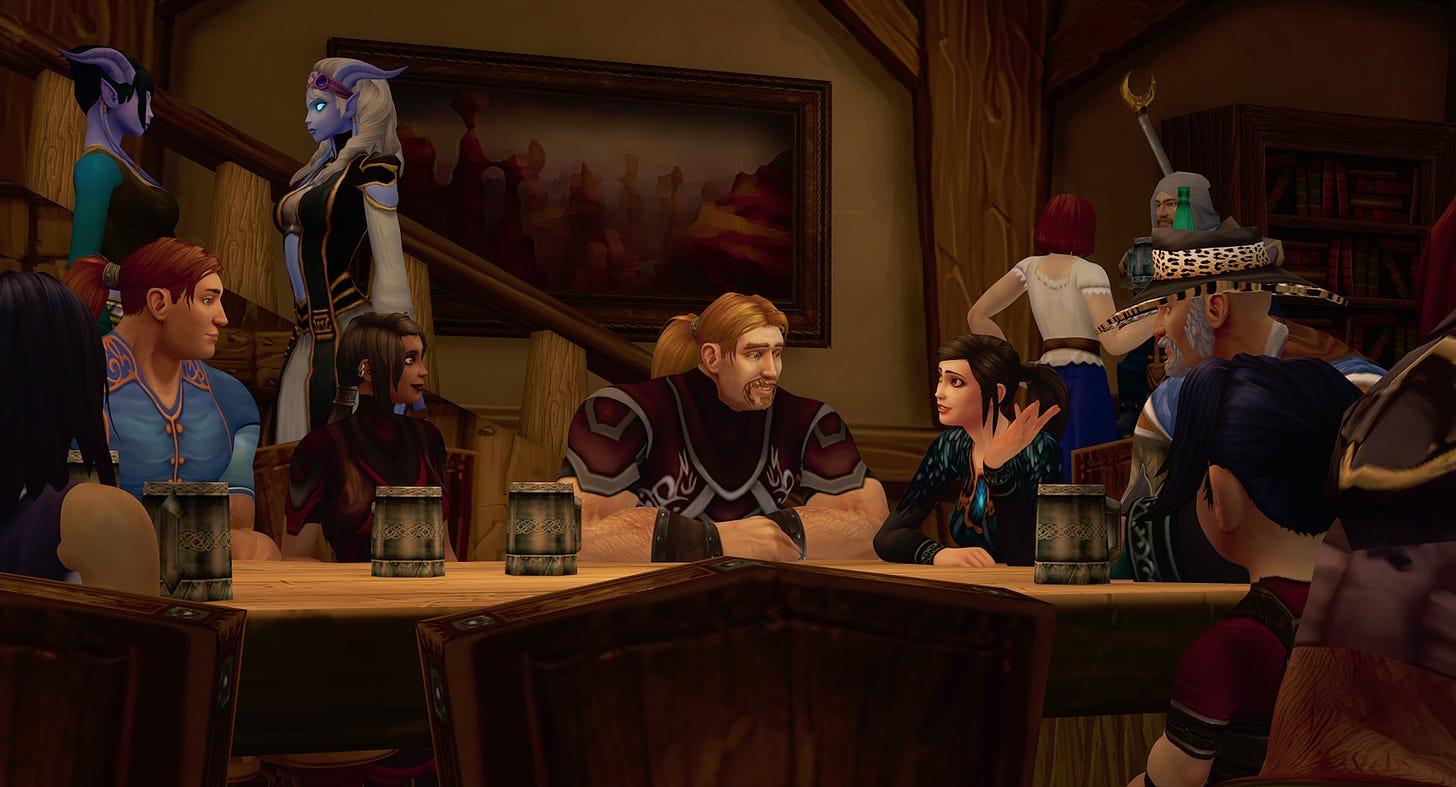
THE REMARKABLE LIFE OF IBELIN
(streaming on Netflix)
It’s quite the story. When twenty-four-year-old Mats Steen (who suffered from Duchenne muscular dystrophy) passed away, his parents were unaware of the true impact gaming had on his life. To them, allowing Mats to play twelve hours a day was a way to compensate for all the things he couldn’t do. More than simply an escape from the constraints of his disease, however, World of Warcraft also gave him the community and purpose he never found in reality. So, when they signed into his blog to announce his death, they were completely unprepared for the number of responses received from “strangers” calling themselves his friends.
What’s more intriguing than this secrecy from his family, though, is Mats secrecy from his Starlight compatriots online. Just like the former didn’t know he lived an entire life on the computer, the latter had no idea about the hardships he faced off it (at least not at first). He made a very concerted effort to keep these two halves of himself apart so as not to shatter the illusion he crafted for himself. Director Benjamin Ree reveals this by recreating gameplay and chat transcripts archived by Starlight forums. In them we see a young man facing the anger and fear of death while struggling to maintain the façade—desperate to not lose the strength that living inside this game provided.
He didn’t yet understand that vulnerability would only deepen his connection to those he loved. THE REMARKABLE LIFE OF IBELIN is thus as much of an eye-opening journey for Mats’ parents post-mortem as it is evidence of the one he took for himself. He helped people pull themselves out of depression and assisted in bringing a mother and her Autistic son together in ways they never could before. His avatar Ibelin was a private detective in the game, but those who knew him in WoW make it seem he was also a professional confidant. All these lost souls with no one to talk to found salvation in a young man who never thought anyone would ever see him as more than someone to pity.
That a majority of the film is narrated through Mats’ own words (spoken by an actor) only adds to the emotional potency of what’s shared. Add interviews with those who knew him better than those who knew him IRL and you see that this isn’t just some vanity project from parents seeking to immortalize their son. Mats’ impact was authentic. The mark (mostly good, but never perfect) he left on these friends from so many different places around the world was indelible. It’s as much about his legacy as it is evidence of the importance of technology as a means of supplying marginalized communities the necessary tools to overcome physical and psychological barriers.
Dismissing online friends as “fake” is beyond ignorant these days. Our world has flattened so much this century that geography is no longer an insurmountable obstacle to finding like-minded people worthy of your companionship and love. To hear Lisette relay how Mats wrote her parents to please find another solution to her failing grades besides taking away her computer and leaving countless friends worried about her well-being is unforgettably moving. These were teenagers honestly and openly educating adults who simply didn’t know better. It’s a defining theme throughout the film: that we can’t know what we don’t know. Yes, we must be willing to listen and learn, but we must also be willing to speak and share.
- 8/10
SÉANCE
(premiered at the Newport Beach Film Fest)
Awkward doesn’t begin to describe the impromptu dinner party initiated at Lillian Ford’s (Vivian Kerr) invitation since she and husband George (Jilon VanOver) are playing hosts to his first wife Emma (Scottie Thompson) and her new husband Albert Strand (Connor Paolo). Old and new collide over alcohol before a torrential downpour forces the quartet to spend the night together as grief (Lillian is haunted by the guilt of being unable to save her young daughter Hazel from drowning a few months earlier) and frustration (Emma cannot get Albert to touch her let alone try for a child of their own) allows jealousy and regret to take control.
Written and directed by Kerr, SÉANCE’s gothic horror is born upon the crumbling psychology of these four characters’ independent search for answers in all the wrong places. George and Emma feel they’ve made a mistake marrying younger spouses while still pining over what could have been (but never was). Lillian’s longing for Hazel has shattered her to the point where she’s been abandoned by her friends (and perhaps her husband) while Albert’s fear of intimacy places his relationship with Emma at risk of ending before it’s even begun. So, when Lillian suggests a séance to commune with her daughter, no one has the courage to decline.
The result is a rather effective psychological thriller against the setting of a darkened, cloth-covered mansion with rain blustering at the windows. Because something does happen when they gather around a candlelit table in hopes of reaching the spirit world—something none of them can explain without accusations of manipulation. But what if Hazel is still there, torturing her mother for letting her die? Or, what if the child, as Emma suggests, is actually leaving her toys in the hallways as a sign for Lillian to put them away and finally let go? Both choices bring their own form of nightmare.
What’s nice about this micro-budget indie, though, is that the duality to Hazel’s potential presence isn’t the only intrigue on display. There’s also the more believable explanation that Lillian is staging everything to torture herself. That idea then allows George to pull further away, which, in turn, yanks Emma further from Albert through the growing possibility of rekindling their love together. Add the period-specific (although sadly not extinct) notions of gender norms with Emma originally leaving George because he didn’t support her burgeoning writing career, and the avenues Kerr leads us down multiply until we give ourselves over to the mystery’s designs.
Where she finally goes proves equally tragic and horrific in its exposure of humanity’s penchant for selfishness in cruel and opportunistic ways. Not that these characters don’t already epitomize that truth considering ulterior motives, secrets, and betrayals revealed early on. Kerr simply has a knack for making sure their duplicitous natures are sympathetic enough to accept their plight before finally pulling the rug to show one’s actions are truly unforgivable. It helps that they each tiptoe around their respective dishonesty so as not to make their present distress worse. We inherently distrust them all so the real villain’s reveal allows us to turn towards the victims rather than solely away from the perpetrator.
- 7/10
Cinematic F-Bombs:
This week saw I, ROBOT (2004) and MOONLIGHT MILE (2002) added to the archive (cinematicfbombs.com).
Susan Sarandon dropping one of her three f-bombs in MOONLIGHT MILE.
New Releases This Week:
(Review links where applicable)
Opening Buffalo-area theaters 10/25/24 -
CONCLAVE at Dipson Amherst; AMC Maple Ridge; Regal Elmwood, Transit, Galleria & Quaker
LET’S START A CULT at Regal Transit
THE LINE at Regal Elmwood
THE MAN YOU DON’T KNOW at Regal Transit
POTTEL at Regal Elmwood
VENOM: THE LAST DANCE at Dipson McKinley, Flix & Capitol; AMC Maple Ridge & Market Arcade; Regal Elmwood, Transit, Galleria & Quaker
YOUR MONSTER at Regal Galleria & Quaker
Streaming from 10/25/24 -
AZRAEL – Shudder on 10/25
DON’T MOVE – Netflix on 10/25
ROAD DIARY: BRUCE SPRINGSTEEN AND THE E STREET BAND – Hulu/Disney+ on 10/25
THE BEAST WITHIN – Hulu on 10/25
THE REMARKABLE LIFE OF IBELIN – Netflix on 10/25
Thoughts are above.
TRAP – Max on 10/25
“It's the type of pulpy good time that we rarely get with conscious intent anymore. Too often we end up laughing at a film like this. It's nice to laugh with this one.” – Full thoughts at HHYS.
MARTHA – Netflix on 10/30
TIME CUT – Netflix on 10/30
APOCALIPSIS Z: EL PRINCIPIO DEL FIN – Prime on 10/31
DESPICABLE ME 4 – Peacock on 10/31
MEGAN THEE STALLION: IN HER WORDS – Prime on 10/31
THE SUBSTANCE – MUBI on 10/31
Now on VOD/Digital HD -
BEYOND AFTER (10/22)
CARNAGE FOR CHRISTMAS (10/22)
“A lean, melodramatic tale of returning home to discover the people who thought they were better than you are the losers you always knew they were.” – Full thoughts at The Film Stage.
CLASSIFIED (10/22)
DAAAAAALÍ! (10/22)
“The result is an entertaining journey into the artistic chaos of genius and the necessity of luck and coincidence to even begin hoping to herd the cats that are Dalí's fractured visages of himself.” – Full thoughts at HHYS.
HANGDOG (10/22)
TRANSFORMERS ONE (10/22)
ALL YOU NEED IS BLOOD (10/25)
AZRAEL (10/25)
DARLA IN SPACE (10/25)
FRANKIE FREAKO (10/25)
SISI & I (10/25)
“A fantastic character study that does well to spend time on the masks these women wear as well as the lives trapped beneath. Helped by a surprisingly anachronistic soundtrack of pop songs that invigorates the subject matter from stuffy to timeless.” – Full thoughts at HHYS.





